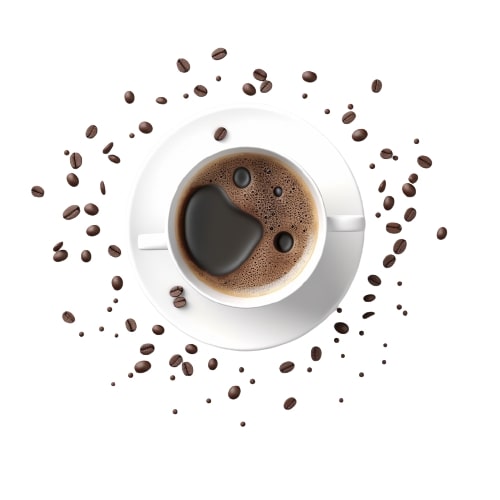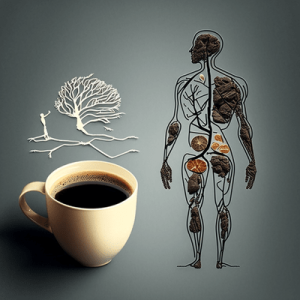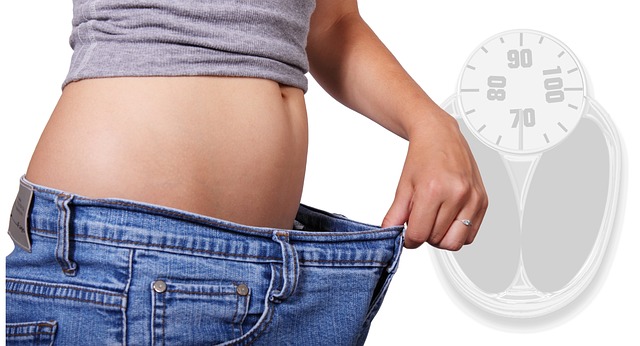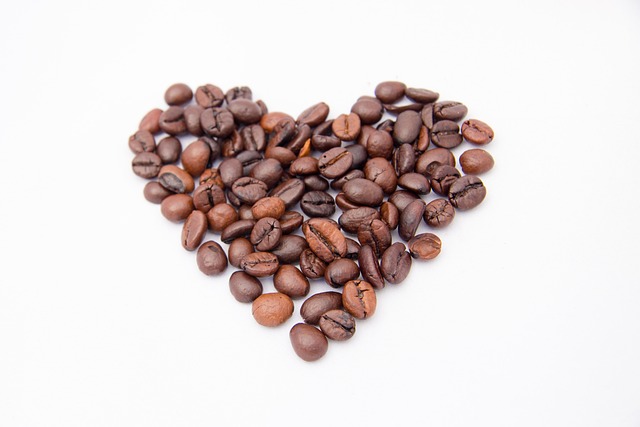Is Caffeine an Appetite Suppressant?
Caffeine is one of the most widely consumed stimulants in the world. Many people rely on their morning cup of coffee or tea to help wake them up and get going for the day. But caffeine may also have some other effects on the body, including potentially suppressing appetite. In this article, we’ll take an in-depth look at the research around caffeine and appetite suppression.

How Caffeine Works in the Body
Before diving into caffeine’s effects on appetite, it helps to understand how caffeine works after it’s consumed.
Caffeine is quickly absorbed by the small intestine and distributed throughout the body. It mainly affects the brain by blocking adenosine receptors.Adenosine is a neurotransmitter that promotes sleep and suppresses arousal. By blocking its receptors, caffeine increases neuron firing in the brain, resulting in heightened alertness and focus.
Caffeine also stimulates the release of certain neurotransmitters like dopamine and norepinephrine. This boosts mood, energy, concentration, and motivation. The effects of caffeine peak around 30-60 minutes after consumption and can last up to 5-6 hours .
Now let’s explore how these stimulant mechanisms may influence appetite and food intake.

Caffeine and Appetite Hormones
Several studies indicate caffeine can influence key appetite hormones like ghrelin and leptin:
- Ghrelin – Known as the “hunger hormone,” levels normally rise before meals to stimulate appetite. Research shows caffeine may lower ghrelin levels, especially in obese individuals
- Leptin – Leptin signals satiety and suppresses hunger once you’ve eaten enough. Caffeine has been found to increase leptin levels
By lowering ghrelin and raising leptin, caffeine may dull the drive to eat. This effect seems most pronounced with higher caffeine doses of 200-400mg . A standard 8 oz cup of coffee contains around 95mg caffeine.
Caffeine’s Effect on Appetite Perception
Beyond regulating hunger signals, caffeine also seems to directly impact how hungry we feel.
In a study comparing the appetites of habitual coffee drinkers and non-coffee drinkers, the coffee drinkers reported significantly lower hunger levels – even when consuming fewer calories.
Research also shows perceptions of hunger tend to be lower immediately after consuming caffeine compared to decaf versions of the same drinks .
So not only can caffeine influence appetite hormones, but it may also dull the perception of hunger itself.

Metabolic Impacts
Caffeine is known to boost metabolism and fat burning, especially when paired with exercise . This thermogenic effect means the body burns slightly more calories both at rest and during activity.
A review of 13 studies found caffeine increased resting metabolic rate by an average of 3-4% . That equates to around an extra 15-20 calories per hour burned.
During exercise, caffeine increased fat metabolism by an average of 10-29%.
This moderate metabolic boost from caffeine results in greater total energy expenditure. So the body’s heightened energy burn may act as another appetite suppressant mechanism.
Impacts on Weight Loss
With all these potential effects on hunger levels and metabolism, does caffeine consumption actually help with losing weight? The research is mixed.
Some studies have found caffeine supports short-term weight loss. Women consuming caffeine lost an average of 2 pounds more than the placebo group over 12 weeks in one study.
However, other research found no significant difference in weight loss between caffeine consumers and those who avoided caffeine over a 6 month period .
The varied results may come down to differences in the study populations as well as caffeine dosing. Consuming caffeine in isolation also seems less effective than pairing it with green tea or coffee.
Overall, caffeine on its own is unlikely to lead to dramatic weight loss. But for some individuals, it may provide a modest advantage.

Potential Drawbacks of Relying on Caffeine
While caffeine’s influence on appetite and metabolism can be beneficial, there are also some potential downsides:
- Disrupts sleep – Caffeine can impair sleep quality if consumed too late in the day . Poor sleep is tied to overeating and weight gain over time.
- Causes crashes – The stimulating effects of caffeine wear off after several hours. This can lead to fatigue, irritability, and cravings for sugary foods.
- Tolerance builds – With regular use, the body becomes tolerant to caffeine’s effects. This means greater amounts are required to experience the same benefits.
- Higher intakes raise the risk of side effects like headaches and nausea.
- Withdrawals – Quitting caffeine after a period of heavy use often causes headaches, fatigue, and difficulties concentrating. Withdrawal symptoms may persist for a week or more .
Moderation and timing caffeine intake appropriately can help minimize negative impacts. Consuming 200-400mg caffeine in the morning is unlikely to disrupt sleep or cause severe crashes.
How to Use Caffeine as an Appetite Suppressant
If you’re looking to leverage caffeine for appetite and weight control, consider these tips:
- Time it right – Have your last caffeine intake at least 6 hours before bedtime. Consuming it too late impairs sleep.
- Wait to eat – Try waiting 30-60 minutes after having caffeine to eat breakfast. This allows time for appetite suppressing effects to kick in.
- Pair with exercise – Do cardio within 1-2 hours of caffeine intake to maximize fat burning. But allow 10-15 minutes for it to absorb before working out.
- Stay hydrated – Caffeine has a mild diuretic effect. Drink plenty of water to avoid dehydration.
- Choose your source wisely – Get caffeine from black coffee or green tea rather than soda or energy drinks with added sugars.
- Cycle intake – Take 1-2 caffeine-free days per week to avoid building tolerance.
With smart use, caffeine may aid appetite control and weight management for some people. But it should be viewed as an adjunct, not a replacement, for an overall healthy lifestyle.
Other Tips for Curbing Hunger and Cravings
While caffeine can help suppress appetite, other strategies can further promote satiety throughout the day:
- Eat more protein and fiber – Foods high in protein and fiber take longer to digest. This provides prolonged satiety between meals.
- Drink water before meals – Having 16 oz water 30 minutes before eating can take the edge off hunger pangs.
- Get enough sleep – Those who are sleep deprived experience greater appetite stimulation and cravings.
- Manage stress – High stress drives overeating behaviors. Relaxation practices like meditation help relieve stress.
- Chew slowly – Taking time to chew each bite thoroughly allows satiety signals to kick in.
- Limit distractions – Avoid eating while distracted by screens or devices. Staying present helps recognize fullness cues.
With a combination of nutritional, lifestyle, and behavioral approaches, most people can achieve effective appetite control without relying on caffeine alone.

The Bottom Line
Based on the current research, caffeine can help suppress appetite and enhance fat burning in several ways:
- Lowers appetite hormones like ghrelin
- Increases satiety hormones like leptin
- Blunts perception of hunger
- Provides a modest metabolic boost
- May support short-term weight loss
However, caffeine isn’t a magic bullet for weight control. Tolerance build up, disrupted sleep, crashes, and other drawbacks need to be considered.
When used judiciously by consuming moderate amounts at appropriate times, caffeine may be a useful part of an overall weight management strategy. But it should not be the sole approach.
Sustainable appetite control and weight loss most often result from balanced, nutrient-dense eating, active lifestyle, adequate sleep, and stress management. But for coffee and tea lovers, enjoying their daily cup of joe in moderation can be part of the equation.
References
- https://www.ncbi.nlm.nih.gov/books/NBK223808/
- https://www.ncbi.nlm.nih.gov/pmc/articles/PMC4462609/
- https://www.ncbi.nlm.nih.gov/books/NBK223808/
- https://pubmed.ncbi.nlm.nih.gov/23204152/
- https://pubmed.ncbi.nlm.nih.gov/18842784/
- https://pubmed.ncbi.nlm.nih.gov/26554757/
- https://www.sciencedirect.com/science/article/abs/pii/S0195666317305068
- https://academic.oup.com/ajcn/article/49/1/44/4694932
- https://journals.physiology.org/doi/full/10.1152/ajpendo.00563.2006
- https://www.ncbi.nlm.nih.gov/pubmed/14557692
- https://journals.physiology.org/doi/full/10.1152/ajpendo.00563.2006
- https://care.diabetesjournals.org/content/27/1/41
- https://care.diabetesjournals.org/content/28/5/1230
- https://www.sciencedirect.com/science/article/pii/S093947532030445X
- https://www.ncbi.nlm.nih.gov/books/NBK430790/#:~:text=For%20most%20people%2C%20caffeine’s,6%20hours%20before%20bedtime
- https://www.health.harvard.edu/staying-healthy/the-buzz-on-caffeine
- https://www.ncbi.nlm.nih.gov/books/NBK223808/
- https://www.ncbi.nlm.nih.gov/books/NBK430790/#:~:text=For%20most%20people%2C%20caffeine’s,6%20hours%20before%20bedtime.
- https://www.ncbi.nlm.nih.gov/pmc/articles/PMC5357645/







